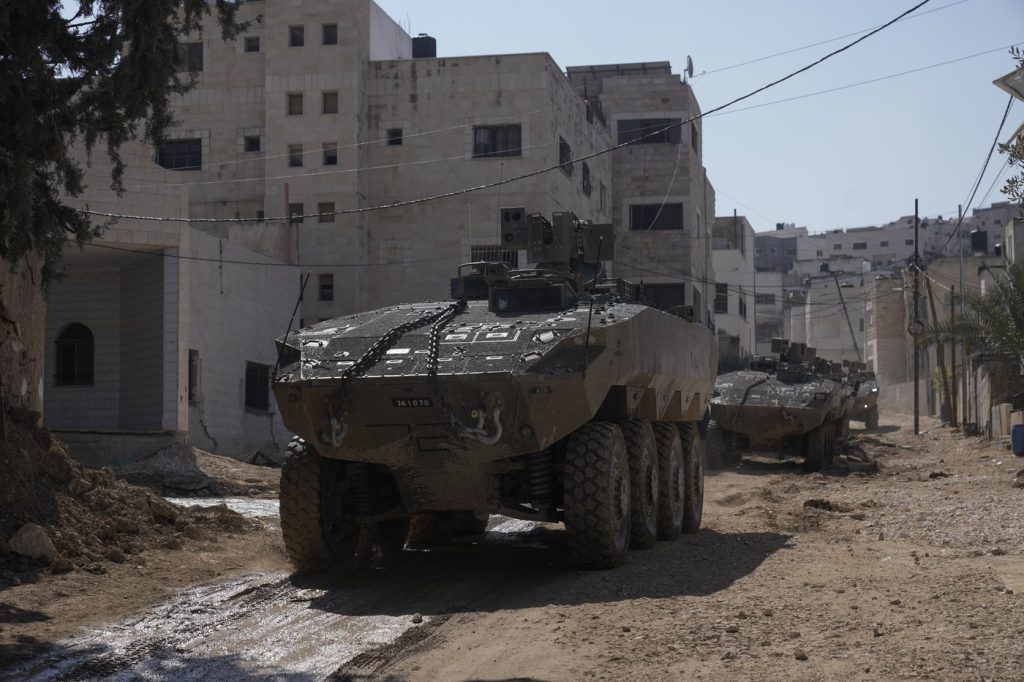OTTAWA — The Canadian government is taking diplomatic action after an incident in the West Bank where the Israeli Defense Forces (IDF) fired warning shots near a diplomatic tour, prompting Prime Minister Mark Carney to label the situation as “totally unacceptable.” The incident occurred on Wednesday during a tour of the city of Jenin, where four Canadians were among the delegation.
Prime Minister Carney expressed the need for an explanation, emphasizing that this incident is part of broader unacceptable actions occurring in the region. "It's some of many things that are totally unacceptable that are going on in the region," he stated at a press conference on Parliament Hill. The Israeli military subsequently expressed regret over the inconvenience caused by the warning shots, claiming that the group had deviated from its approved route.
Foreign Affairs Minister Anita Anand confirmed the involvement of Canadian diplomats in the tour and expressed relief that they were unharmed. She called for a full investigation into the incident, emphasizing that accountability is necessary. Anand also announced her decision to summon Israel's Ambassador to Canada to convey the government’s serious concerns over the matter on social media.
Videos circulating online depicted the panic during the incident, as diplomats hurried away from the sound of gunshots. The IDF stated that the warning shots were fired to direct the group away from an area they were not authorized to enter, asserting that no injuries occurred during the event.
International reactions included France's Foreign Minister Jean-Noël Barrot and Italy's Foreign Affairs Minister Antonio Tajani, both of whom also summoned Israeli ambassadors in their respective countries to express displeasure regarding the incident. The IDF announced that they would conduct an inquiry and communicate the findings to the affected diplomats.
Colin Robertson, a former Canadian diplomat, remarked on the inherent risks associated with diplomatic tours in conflict zones, citing past incidents where Canadian observers were killed while monitoring peace in locations such as Vietnam. He attributed the recent event to the "warlike conditions" present in the West Bank, even though he acknowledged that such incidents are serious.
The incident follows a recent joint statement made by Prime Minister Carney, British Prime Minister Keir Starmer, and French President Emmanuel Macron, where they threatened to impose “targeted sanctions” on Israel. This was in response to Israel's military actions in Gaza and concerns about inadequate humanitarian aid being allowed into Palestinian territories. The leaders also expressed opposition against any expansion of Israeli settlements in the West Bank.
Carney addressed the potential reaction from the U.S. regarding the joint statement, suggesting that he informed the vice-president about Canada’s intention to issue a statement, characterizing the dialogue as a "one-way conversation." He emphasized that the goal of the statement was to pressure Israel to allow sufficient humanitarian aid into Gaza and allocated responsibility for action to the Israeli government.
On the international front, the U.K. has already implemented sanctions against individuals and organizations it claims are involved in violence against Palestinian communities in the West Bank. While discussions on a new trade deal with Israel have been paused, trade between the two nations continues. Observers anticipate that Canada may adopt a more independent diplomatic stance moving forward, particularly in relation to its allies.
In recent remarks made by Israeli Prime Minister Benjamin Netanyahu, he criticized the Canadian, French, and British leaders for what he described as a capitulation to "genocidal attacks" against Israel orchestrated by Hamas, an organization designated as terrorist by Canada. Notably, Hamas welcomed the statement from the three leaders, viewing it as a positive development.
This ongoing situation highlights the complex and often fraught dynamics between diplomatic engagements in conflict zones and the broader geopolitical environment, as nations grapple with their stances toward Israel and the Palestinian territories.
— With contributions from Kelly Geraldine Malone in Washington and Catherine Morrison in Ottawa.












